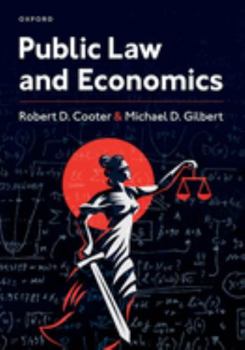Public Law and Economics
This comprehensive textbook applies economic analysis to public law. The economic analysis of law has revolutionized legal scholarship and teaching in the last half-century, but it has focused mostly on private law, business law, and criminal law. This book extends the analysis to fundamental topics in public law, such as the separation of government powers, regulation by agencies, constitutional rights, and elections. Every public law involves six fundamental processes of government: bargaining, voting, entrenching, delegating, adjudicating, and enforcing. The book devotes two chapters to each process, beginning with the economic theory and then applying the theory to a wide range of puzzles and problems in law. Each chapter concentrates on cases and legal doctrine, showing the relevance of economics to the work of lawyers and judges. Featuring lucid, accessible writing and engaging examples, the book addresses enduring topics in public law as well as modern controversies, including gerrymandering, voter identification laws, and qualified immunity for police.
Format:Paperback
Language:English
ISBN:0197655882
ISBN13:9780197655887
Release Date:October 2022
Publisher:Oxford University Press
Length:624 Pages
Weight:2.44 lbs.
Dimensions:1.6" x 7.0" x 9.9"
Related Subjects
LawCustomer Reviews
0 rating





